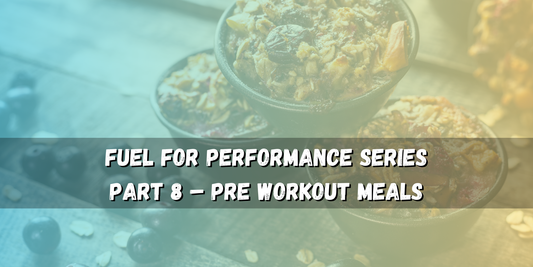There’s a lot of noise out there when it comes to nutrition—especially for athletes trying to fuel performance, stay lean, and recover faster. In this new series, we’re breaking down the most controversial nutrition topics and answering one simple question:
Is it good or bad for athletic performance?
From fasting and dairy to gluten, processed foods, and trendy diets—we’ll look at what the science says, what real-world experience shows, and how it all applies to rugby players and athletes who train hard.
Here’s how the series looks:
- Part 1: Fasting – Good or Bad for Performance?
- Part 2: Dairy – Fuel or Flaw for Athletes?
- Part 3: Gluten – Cut It or Keep It?
- Part 4: Processed Foods – Fuel or Fail?
- Part 5: Raw Meats & Eggs – Hack or Health Risk?
- Part 6: Keto Diet – Can It Work for Athletes?
- Part 7: Vegan Diet – Enough to Perform?
- Part 8: Vegetarian Diet – Can You Build Strength & Power?
- Part 9: Pescatarian Diet – Balanced or Falling Short?
- Part 10: Carnivore Diet – Can Meat-Only Diets Boost Performance?
We’re starting the series with Part 1: Fasting—a method that’s gained traction among athletes looking to improve body composition, recovery, and overall health.
Fasting is no longer just a wellness trend—it’s a structured approach many are now exploring. But what happens when you bring intermittent fasting into a performance environment like rugby? Can it actually enhance results—or does it risk under-fueling and hurting recovery?
Let’s break it down through the lens of science and sport.
WHAT IS FASTING?
Fasting simply means going for an extended period without food. Most popular among athletes today is intermittent fasting (IF)—a structured eating approach that cycles between periods of eating and fasting.
Common methods include:
- 16:8 – Fast for 16 hours, eat during an 8-hour window
- 14:10 – A more relaxed beginner version
- 18:6 or 20:4 – Tighter feeding windows, sometimes called OMAD (One Meal A Day)
- 24–36–72 hour fasts – Extended fasts used occasionally for reset or weight management
WHAT THE RESEARCH SAYS
A 2024 systematic review titled “Intermittent Fasting: Does It Affect Sports Performance?” analyzed 25 peer-reviewed studies across aerobic capacity, anaerobic capacity, muscular strength, and body composition.
Key findings include:
- Improved body composition (less fat, maintained or increased lean mass)
- No negative impact on strength, power, or endurance
- Potential improvements in max power output
- Improved insulin sensitivity and inflammatory markers
- Some short-term fatigue or performance dips if hydration or sleep is disrupted (e.g., Ramadan)
In short: fasting does not impair athletic performance and may enhance it—when done right.
BENEFITS OF FASTING FOR ATHLETES
- Improved Body Composition: Fat mass reduction with preserved muscle = better power-to-weight ratio
- Enhanced Metabolic Flexibility: More efficient fat utilization during lower-intensity sessions
- Improved Insulin Sensitivity: Supports recovery, energy regulation, and lean mass preservation
- Stronger Inflammatory Profile: Lower systemic inflammation, better immune function = faster recovery
- Better Appetite and Meal Discipline: Fewer meals = better meal quality and digestion for some athletes
RISKS AND CONSIDERATIONS
Fasting is a tool—not magic. It can backfire if poorly applied:
- Under-fueling – Athletes still need to hit their protein and calorie targets within the feeding window.
- Low energy during training – Fasting through intense morning workouts without fuel can affect session quality.
- Reduced sleep or hydration – Especially during overnight fasting or religious fasts like Ramadan.
- Poor planning = missed nutrients – Athletes with long fasts often skip recovery meals or nutrient timing around sessions.
FASTING FOR RUGBY PLAYERS: WHAT WORKS BEST?
Fasting can be a powerful strategy—especially in the off-season, during fat-loss phases, or when resetting digestive or lifestyle habits.
But it needs to be adjusted around training:
- Morning training: Break the fast afterward with protein + carbs.
- Evening training: Time your biggest meal post-workout.
- Playing multiple matches in a week: Prioritize recovery over fasting
The 16:8 window appears to be the most studied and effective for athletes, offering flexibility while preserving performance.
GOOD OR BAD FOR PERFORMANCE?
Verdict: Good—when applied strategically.
Intermittent fasting can improve body composition, support recovery, and maintain strength—as long as total calorie and protein needs are met. It’s not for everyone, but for disciplined athletes who structure their nutrition around training, it can be a highly effective tool.
COACH’S TAKE
I’m a big believer in fasting—not as a magic fix, but as a structured strategy that teaches discipline, improves body awareness, and supports long-term health.
Just make sure it’s not draining your energy before games or workouts. Fuel with intent, and fast with purpose.
WANT TO TRAIN SMARTER AND FUEL BETTER?
Enter your email below to join the newsletter and get 15% off your first supplement order—plus free weekly tips straight to your inbox:
- Monday Training Tip: Strength, recovery, mobility, and performance routines
- Thursday Nutrition Tip: Meals, macros, supplements, and fueling strategies
If you found this article helpful, don’t forget to:
- Like and share this post with your teammates and fellow rugby fans
- Bookmark the blog to stay updated on the next rounds
- Follow @gopeakrugby on X and Facebook and subscribe to our Youtube Channel for more rugby analysis, match recaps, and insights


















